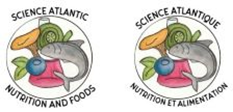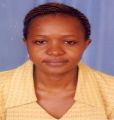Conference Schedule
Day 1, March 28 (Friday), 2025
7:00 to 7:05 pm: Opening Remarks and Land Acknowledgement (Cathy Leblanc and Shannan Grant, Two-Eyed Seeing Program, Mount Saint Vincent University)
7:05 to 8:05 pm: Keynote Talk "Mijipjewey na Pisun (Food as Medicine): Food security, land and Indigenous rights as a foundation" (Tuma Young, Cape Breton University)
Day 2, March 29 (Saturday), 2025
9:00 am to 9:05 am: Opening Remarks and Land Acknowledgement (Jennifer Taylor, University of Prince Edward Island)
9:05 am – 9:35 am: Guest Lecture 1 (Thomas Pulinilkunnil, Dalhousie University)
9:35 am – 10:40 am: Session A – Oral Presentations (10 minutes per speaker)
Order of Session A Presentations:
1. Matthew Code, Acadia University (Abstract # 10)
2. Ella Smith, Memorial University (Abstract # 18)
3. Emily Dolan, Acadia University (Abstract # 8)
4. Wasitha de Wass Thilakarathna, Dalhousie University (Abstract # 6)
*10 minutes for questions
10:40 – 10:50 am: BREAK (10 min)
10:50 am – 12:30 pm: Session B – Oral Presentations (10 minutes per speaker)
Order of Session B Presentations:
1. Adar Buxton, Memorial University (Abstract # 13)
2. Kavindya Samarakoon, Dalhousie University (Abstract # 3)
3. Laura Gosine, Mount Saint Vincent University (Abstract # 35)
4. Chandrika Chaturvedi, Dalhousie University (Abstract # 7)
*10 minutes for questions
5. Abderrahmane Meziane, Université de Moncton (Abstract # 36)
6. Sabrina Dahmani, Université de Moncton (Abstract # 15)
7. Morgan Ledrew, Memorial University (Abstract # 16)
8. Hanna Gedif, Dalhousie University (Abstract # 31)
*10 minutes for questions
12:30 pm – 1:00 pm: Lunch BREAK
1:00 pm to 1:30 pm: Guest Lecture 2 (Petra Kienesberger, Dalhousie University)
1:30 pm to 2:40 pm: Session C – Oral Presentations (10 minutes per speaker)
Order of Session C Presentations:
1. Dinushi Kaushalya Gamage, Dalhousie University (Abstract # 4)
2. Jessica O’Flaherty, Mount Saint Vincent University (Abstract # 1)
3. Thilini Kumarasinghe, Dalhousie University (Abstract # 5)
4. Amarasena Sathya, Memorial University (Abstract # 11)
5. Madumani Amararathna, Dalhousie University (Abstract # 2)
*12 minutes for questions
2:40-2:50 pm BREAK
2:50 pm to 4:00 pm: Session D: Three-Minute Poster Presentations
Order of presentations (Abstract Number): 9, 12, 17, 19, 20, 22, 23, 24, 25, 26, 27, 28, 29, 30, 32, 33, 34, 37, 38, 39.
4:00 pm to 5:00 pm: Keynote Presentation 2 (David Ma, University of Guelph)
5:00 pm – 5:30 pm: Awards Ceremony and Closing Remarks
Download the Program and Schedule
Download the Speaker and Abstract Booklet
Download a printable conference poster (English)
Download a printable conference poster (French)
Once registered, delegates will be emailed the details of online access to the sessions.
Speakers
Keynote Speaker 1
Topic: Mijipjewey na Pisun (Food as Medicine): Food Security, Land and Indigenous Rights as a Foundation
Speaker: Tuma Young

Affiliation: Unama’kik College Institute and Department of Political Science & Indigenous Studies, Cape Breton University, Sydney, NS
Date and Time: March 28 Friday at 7:00 pm
Abstract:
The World Health Organization and others define food security as when all people have physical, social, and economic access to sufficient, safe, and nutritious food that meets their dietary needs and food preferences. According to this definition, many Indigenous people are not food secure, an important consideration for people interested in contributing to the field of nutrition and food. This presentation will be delivered by Tuma Young, a respected knowledge keeper, Nujiaqnutmewinu (Lawyer), and university educator. It will explore food security from the perspective of Indigenous rights.
Biosketch:
Tuma Young is the first Mi’kmaw-speaking lawyer in Nova Scotia, raised in Malagawatch First Nation Community , and is a member of Eskasoni. A respected teacher of Mi’kmaq Studies at Cape Breton University, Tuma has several interests research interests, related to reclaiming and restoring Mi’kmaq legal principles, the traditional roles and responsibilities of two-spirited people. For decades now, Tuma has worked tirelessly for Indigenous rights, including 2SLGBTQ+ rights, by raising awareness at the local level and ensuring that two-spirited people are celebrated in their communities. He has engaged in several projects with our sponsoring institutions, including a valued mentor for the Etuaptmunk (Two-Eyed Seeing) Program, that aims to bring together difference ways of knowing, understanding and applying what we refer to as science.
Keynote speaker 2
Topic: Diet and Health: From omega-3 lipids for cancer prevention, from experimental models to families dietary intervention
Speaker: Dr. David Ma, Professor

Affiliation: Department of Human Health & Nutritional Sciences, University of Guelph, Guleph, ON.
Date and Time: March 29 Saturday at 4:00 pm
Abstract:
The long-term objective of my research program is to increase our fundamental knowledge of the role of dietary fatty acids in human health and disease. I am interested in the effects of fats throughout the life cycle from in utero to old age in both the prevention and treatment of disease. Currently, my research is primarily funded in the area of breast cancer prevention examining how omega-3 fatty acids modify mammary gland development, signaling, and tumour development. In addition, I am the Director of the Guelph Family Health Study, one of the largest active family cohorts in Canada. The presentation includes our findings on dietary interventions by omega-3 fatty acids for the prevention of breast cancer and status of omega-3 intake in humans.
Biosketch:
Dr. David W.L. Ma obtained his PhD in Medical Sciences in 2001 at the University of Alberta conducting research on the anticancer properties of conjugated linoleic acids in breast cancer. He was a postdoctoral fellow at Texas A&M University where he investigated the role of omega-3 fatty acids and folate in colon cancer. In 2004, he joined the Department of Nutritional Sciences at the University of Toronto as an Assistant Professor. Then, in 2007, he joined the faculty in the Department of Human Health and Nutritional Sciences at the University of Guelph and currently serving as Full Professor and Director of the Guelph Family Health Study. He has also served as the President of the Canadian Nutrition Society and is a Fellow of the Canadian Nutrition Society.
Guest Lecture 1
Topic: Amino Acid signalling and metabolism in health and disease
Speaker: Prof. Dr. Thomas Pulinilkunnil, M.S. (Pharm), PhD, Professor

Affiliation: Dalhousie University, Faculty of Medicine, Dept. of Biochemistry and Molecular Biology; Dept of Physiology and Biophysics, Co-Lead (DalCREW; Dalhousie Cardiac Research Excellence Wave)
Date and Time: March 29 Saturday at 9:00 am
Abstract:
Energy metabolism is a process that is central to organ health and disease. High ATP turnover in the muscle is required to maintain contractile function, and ATP deficiency is a hallmark of metabolic dysregulation. Maladaptive changes in nutrient uptake, oxidation, storage and signalling can lead to reduced energetic efficiency, ATP starvation, impaired growth, and tissue dysfunction. During obesity, nutrient overload disrupts cardiac and skeletal muscle insulin signaling, leading to insulin resistance and type 2 diabetes. Dysfunctional branched-chain amino acid (BCAA) catabolism increases intracellular branched-chain keto acids (BCKA), which inhibit insulin signaling by activating the mechanistic target of rapamycin (mTOR). The research program in the Pulinilkunnil laboratory examines novel mechanisms of amino acid signalling and metabolism and explores translational avenues to target amino acid metabolism and signalling for the treatment of cardio-metabolic disorders.
Biosketch:
Dr. Thomas Pulinilkunnil is a Professor at the Department of Biochemistry and Molecular Biology and Dept of Physiology & Biophysics, Dalhousie University, Canada, since 2012. Dr. Pulinilkunnil earned his Ph.D. in the laboratory of Dr. Brian Rodrigues at the University of British Columbia, Vancouver, Canada. Dr. Pulinilkunnil pursued two postdoctoral fellowships in the laboratories of Dr. Barbara Kahn and Dr. Jason Dyck at Harvard Medical School and the University of Alberta, respectively. Dr. Pulinilkunnil has expertise in examining the biology and signal transduction pathways of metabolism in health and diseases like obesity, diabetes, heart failure and breast cancer. Pulinilkunnil lab employs a multispecies approach to identify novel mediators and molecular mechanisms by which hormones and nutrients remodel metabolism to govern autophagic protein degradation and protein synthesis. Dr. Pulinilkunnil received several awards, including the Diabetes Canada Scholar Award. Dr. Pulinilkunnil’s research program is funded by CIHR, NSERC, HSFC, Diabetes Canada, and CFI. Dr. Pulinilkunnil has published more than 75 research papers in reputed journals. Dr. Pulinilkunnil is a passionate mentor and teacher.
Guest Lecture 2
Topic: Bioactive lipid metabolism and signalling in metabolic disease
Speaker: Dr. Petra Kienesberger, MSc, PhD, Associate Professor

Affiliation: Dalhousie University, Faculty of Medicine, Dept. of Biochemistry and Molecular Biology
Date and Time: March 29 Saturday at 9:30 am
Abstract:
Cell signalling initiated by bioactive lysolipids modulates organismal energy homeostasis. The Kienesberger laboratory examines the role of bioactive lysolipids such as lysophosphatidic acid in the dysregulation of energy metabolism, impaired insulin function, and remodelling of the cardiac and skeletal muscle during metabolic diseases including obesity and diabetes mellitus. Using cultured cells and in vivo models of metabolic disease, the Kienesberger laboratory aims to determine whether modulation of lysophosphatidic acid metabolism and signalling could be exploited therapeutically to prevent or ameliorate obesity-related tissue insulin resistance, mitochondrial dysfunction, and cardiomyopathy.
Biosketch:
Dr. Petra Kienesberger is an Associate Professor in the Department of Biochemistry and Molecular Biology at Dalhousie University, Canada. She holds a PhD degree from the University of Graz, Austria. Dr. Kienesberger then pursued postdoctoral research at the University of Alberta, Canada. She joined Dalhousie University as an Assistant Professor in 2013, where her research focuses on studying the role of bioactive lipid metabolism and signalling in energy homeostasis. Dr. Kienesberger is a recipient of the Heart and Stroke Foundation of Canada National New Investigator award and Roberto Bolli Young Investigator Award from the International Academy of Cardiovascular Sciences. She serves as a reviewer for national and international grant panels and co-organized national and international conferences, including the ISHR-NAS conference in Halifax in 2018.











